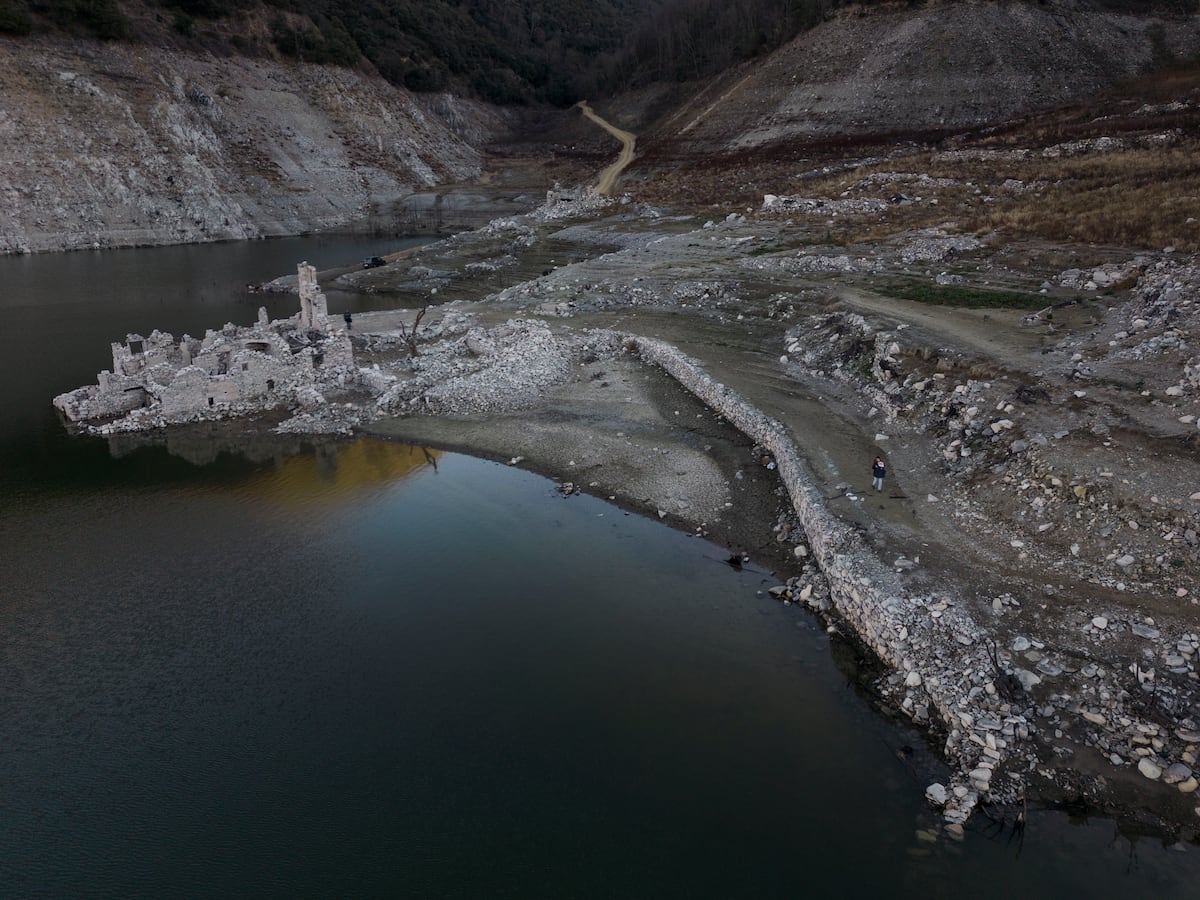It is a matter of days before Catalonia declares an emergency due to water scarcity and the toughest restrictions contemplated in the Special Drought Plan (PES) of the Generalitat are activated.
Among these limitations is the decrease in the volume of water that flows down some of the territory's rivers.
The Federation of Ecologists of Catalonia describes as “unilateral” the reduction of the ecological flows of the Llobregat, Ter and Muga rivers approved last Tuesday by the Government.
“It is a disproportionate drop.
They are going to kill the rivers,” says Joan Vàzquez, spokesperson for environmentalists.
The ecological flow is the amount of water that circulates through a river that allows the life of fauna and vegetation to be maintained, that is, to conserve biodiversity.
The Government will reduce the flow of the Llobregat from 500 to 250 liters per second;
from 2,000 to 600 for the Ter;
and from 135 to 40 that of Muga.
All descents will take place at the mouths of the rivers.
According to the environmental federation, these reductions represent an average of 93% of the volume of rivers and will have “very serious” consequences in the loss of water quality and biological communities.
The Catalan Water Agency (ACA) established in its 2016/2021 river basin management plan that the volumes would be 4,300 liters per second in the Llobregat;
5,500 in the Ter;
and 1,200 in Muga.
More information
The Generalitat will recover Procicat, the body that managed the pandemic, for the drought emergency
Although the Government intends to release large quantities of water twice a week to preserve the flows, Vàzquez explains by phone that they will not be of much use.
“Species and rivers need a constant flow.
The lateral flows will dry up and the central flow will also end up doing so,” details the federation spokesperson.
“They have decided these amounts without consulting the scientific community and from one day to the next,” highlights Vàzquez, who also assures that these cuts conflict with the current water law, which considers ecological flows a priority over other uses.
However, the Special Drought Plan, designed in 2020, puts human consumption first.
That is why the platform will study raising this measure to the Environmental Prosecutor's Office.
“We want a review of the planning from a global point of view of the internal hydrographic basins,” explains the spokesperson.
The Federation has issued a statement in which, in addition to requesting the conservation of ecological flows, "fundamental throughout the entire basin on which an important economic activity depends," they request the conversion of current irrigation to dry land;
the adaptation of existing crops to others that require less water, and the closure of macrofarms during the declaration of emergency.
The organization also proposes the reduction of the activity of bottling plants and the application of a temporary employment regulation file (ERTE) in the same period in all bottling plants.
According to environmentalists, these companies “capture water from internal basins and use approximately five million cubic meters, which is the same as Barcelona consumes in a year.”
However, these companies have always claimed that the water they extract comes from underground sources that do not depend on internal hydrographic basins.
The Generalitat sets maximum annual quantities that bottlers never reach, according to the Catalan Association of Water Bottlers (ACEA).
In 2022, they extracted around 1.8 billion liters, which is equivalent to the water consumption of the entire population's reservoirs in a single day.
Or, what is the same, 0.03% of Catalonia's groundwater reserves.
You can follow EL PAÍS Catalunya on
and
X
, or sign up here to receive
our weekly newsletter

